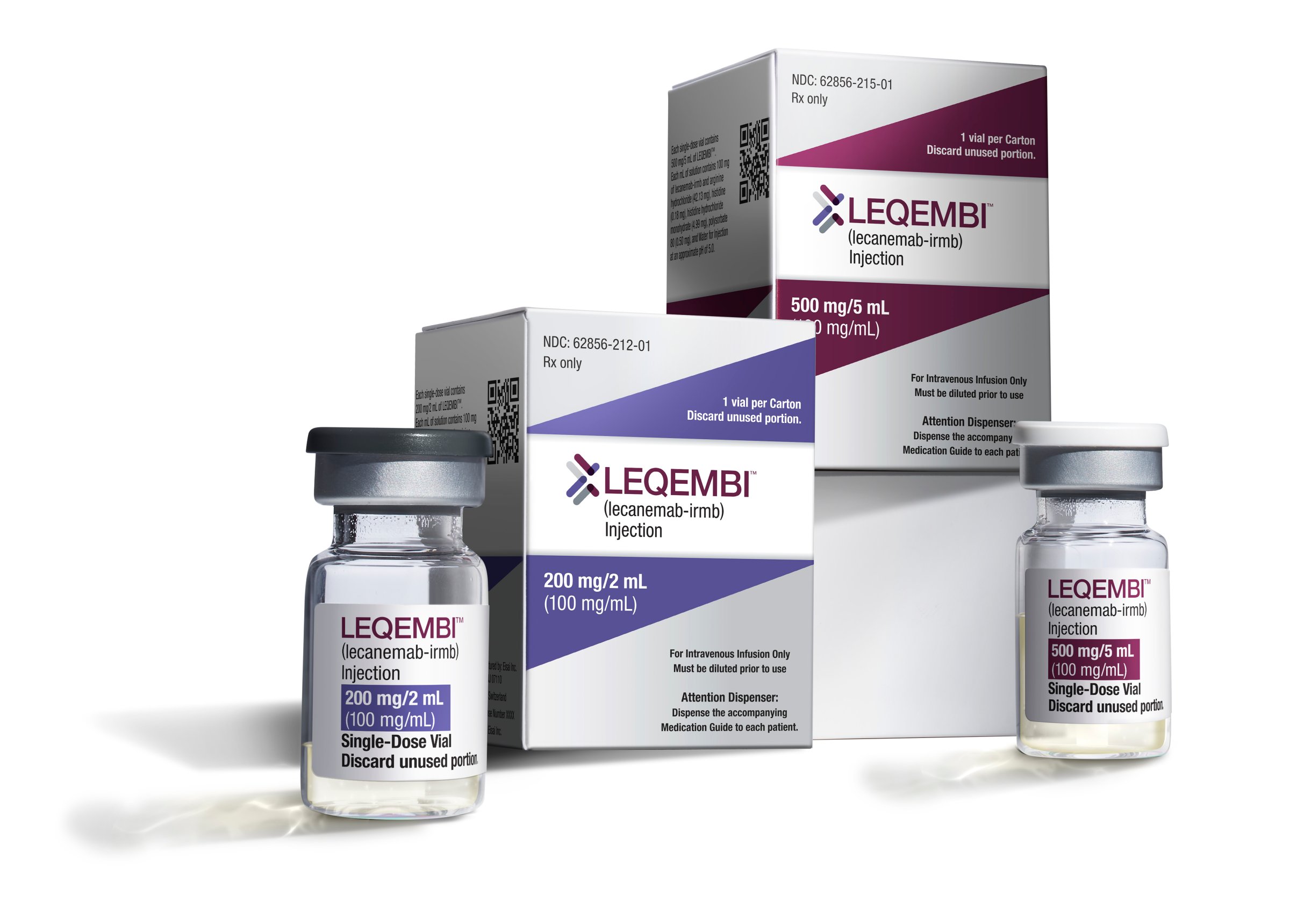
A panel of experts who advise the U.S. Food and Drug Administration (FDA) agreed on June 9 that a late-stage study of a drug for Alzheimer’s disease showed that it was beneficial in slowing cognitive decline. Lecanemab (brand name: Leqembi), made by Eisai and Biogen, was granted accelerated FDA approval in Jan. 2023 based on early-stage studies of the drug’s effectiveness, and the companies submitted additional data to support full approval for the drug. The six-member committee’s vote was unanimous that the additional study verified the clinical benefit of lecanemab.
If the FDA grants the drug full approval, more patients would have access to it. Currently, not all people who need it can receive it: the Centers for Medicare and Medicaid Services (CMS), which operates Medicare, has said it will not cover the drug for most patients unless it receives full approval. Under accelerated approval, patients can only get the drug if they either pay the out-of-pocket price of $26,500 a year or if they are enrolled in a clinical trial that continues to monitor the drug’s safety and effectiveness.
One big loophole remains
Even if the drug becomes fully approved, CMS said in a statement on June 1 that it would cover the drug for patients who agreed to enroll in a national registry that collects “evidence about how these drugs work in the real world.” The requirement is the same that CMS used for the first FDA-approved Alzheimer’s treatment, aducanumab, which was approved despite studies showing differing levels of effectiveness at slowing cognitive decline. Because aducanumab and lecanemab belong to the same class of drugs that target amyloid protein, the agency says the need for additional monitoring is justified.
Such a registry does not yet exist, and it’s still unclear how patients will be able to join it. Advocacy groups like the Alzheimer’s Association have questioned the need for the additional step, saying that it will make it harder to access to the treatment. “We continue to believe that registry as a condition of coverage is an unnecessary barrier,” the group said in a statement in response to CMS’s decision.
More from TIME
Not even the makers of the drug understand the move. “The question becomes what CMS means by ‘registry’ or ‘registries,’” says Ivan Cheung, CEO of Eisai Inc. “No one knows the answer—only CMS does. Until CMS puts out an operational manual about how it’s going to work, we are all guessing.”
Lecanemab’s safety and efficacy
In the meeting, panel experts reviewed data from the completed Phase 3 study of the drug, which confirmed that people with mild cognitive impairment or mild Alzheimer’s dementia who received lecanemab had a 27% slower decline in cognitive abilities compared to those getting placebo. Those receiving the drug also improved their ability to perform daily tasks, such as dressing and feeding themselves, compared to those receiving placebo.
Dr. Sarah Cohen, medical director of the Toronto Memory Program and one of the researchers involved in testing the drug, said during the meeting that such improvements in daily living, and any extension of the time that Alzheimer’s patients can live independently, are crucial. “The ability to remain at an earlier stage of disease for a longer period of time is incredibly important,” she told the panel.
Overall, the panel agreed that the benefits of the drug, which people receive as an infusion every two weeks, outweighed the risks. Some people on the drug developed infusion site reactions and swelling of the brain, called amyloid-related imaging abnormalities, or ARIA. Lecanemab’s label currently includes a warning about the risks of ARIA—which are greater among people who have the ApoE4 gene and are therefore genetically more at risk for Alzheimer’s disease—and the need for doctors to monitor patients for signs of it through brain MRIs. The panel members also discussed a small number of hospitalizations and deaths among people in the study taking lecanemab who were also taking blood-thinning medications like anticoagulants. While some felt they would not recommend people on these medications take lecanemab, others said more data were needed to understand the magnitude of the risk, and that until such data became available, it was premature to exclude any such populations from taking the drug.
The FDA will now take the opinions of the panel into consideration and make a final decision on whether to grant full approval to lecanemab by July 6.
More Must-Reads from TIME
- Cybersecurity Experts Are Sounding the Alarm on DOGE
- Meet the 2025 Women of the Year
- The Harsh Truth About Disability Inclusion
- Why Do More Young Adults Have Cancer?
- Colman Domingo Leads With Radical Love
- How to Get Better at Doing Things Alone
- Michelle Zauner Stares Down the Darkness
Contact us at letters@time.com